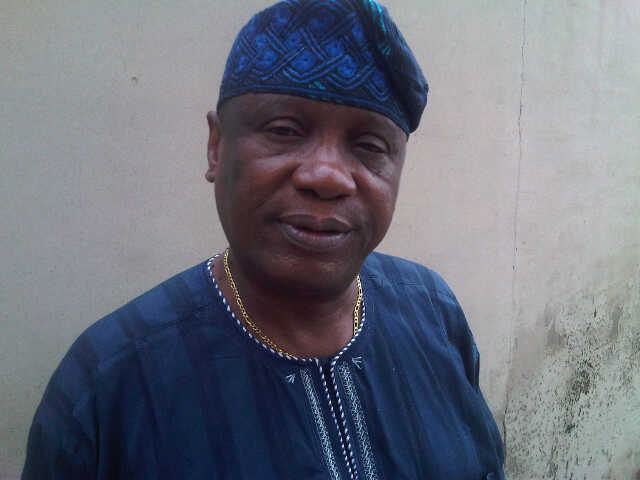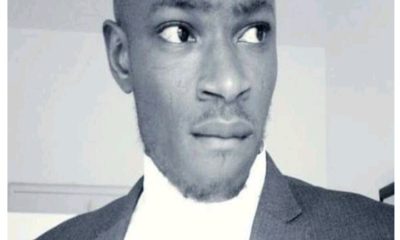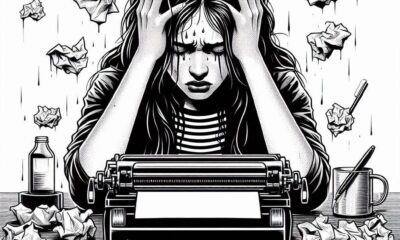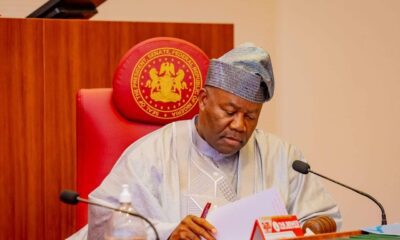National Issues
Diminishing Roles Of Our Traditional Rulers -By Eric Teniola
On January 15, 1966, when General Johnson Thomas Umunnakwe Aguiyi-Ironsi GCFR MBE (March 3, 1924 – July 29, 1966) took over power, there were five constitutions in the country. All the five constitutions upheld the traditional institutions in Nigeria. We had the 1963 Constitution, the Constitution of Northern Nigeria 1963, the Constitution of Eastern Nigeria 1963, the Constitution of Western Nigeria 1963 and the Constitution of Mid-Western Nigeria 1964.

The Coronation of King Charles III of England on May 6 was the exhibition of the British culture and tradition. Give it to the British in terms of tradition, they are experts. You can’t take it from them. They don’t have a written Constitution but they maintain their tradition and culture.
We have a written Constitution but we have deleted our culture and tradition from our constitution and that is our greatest dilemma.
Marcus Garvey famously wrote: “A people without knowledge of their past history, origin and culture is like a tree without roots”.
Our traditional rulers represent the best of our tradition and culture. They have been and they will continue to be. Even in our struggle for independence they played prominent roles. It was not only the politicians that fought for our independence, traditional rulers, journalists and others were in the struggle too.
Let’s be fair to our traditional rulers
From May 23 to June 26, 1957, Nigeria took a bold step towards nationhood at the London Constitutional Conference at Lancaster House. Prominent traditional rulers were delegates to that conference. Among whom were the Emir of Kano, Alhaji Muhammadu Sanusi KBE, who was acting governor of Northern Nigeria in 1957 and the Emir of Kano from 1954-1963; the Emir of Katsina, Alhaji Dr. Muhammadu Kabir Usman (January 1928- March 8, 2008), the 49th Emir of Katsina; the Ooni of Ife, Sir Titus Martins Adesoji Tadeniawo Aderemi (15 November 1889 –July 3, 1980), KCMG, KBE, who later became the governor of Western Region; the Ewi of Ado Ekiti, Oba Daniel Akomolafe Anirare Aladesanmi II (1907- 7 January 1983; the Attah of Igala, Alhaji Aliyu Ocheja Obaje GCFR (1910 – July 16, 2012) , the 26th Attah of Igala; and Chief Uyong Essien Akpan Efion-Iwat Effembe Ebit Akpan Amaide Oku (9 November 9, 1872- October 15, 1976), traditional ruler of Uyo in Akwa Ibom State.
When I was growing up in Idanre, my hometown in the late fifties, myself and my cousin, Chief Babu Akinbobola used to visit our friend, Chief Pino Olatunji, to see the car of his father, Chief Olatunji, who was the Lisa of Idanre, second in command. It was a red Pontiac American car.
Chief Pino used to oblige us to enter the car. Lisa Olatunji acquired the car as a member of the House of Chiefs in the then Western Region to represent the then Owa of Idanre, Oba David Aladegbule Arubuefin Aroloye II, who reigned between 1918 and 1969; he was too old to travel then. Three days before traveling to Ibadan for the meeting of the Western Region House of Chiefs, there would be festivities in and around the house of Lisa Olatunji. The House of Chiefs by then played important roles in governance in the Western Region.
During that time, some members of the House of Chiefs were ministers without portfolio. Among them were Olubadan of Ibadan, Oba Isaac Babalola Akinyele (April 18, 1882 – May 30, 1964) who reigned from 1955 to 1965; the Osemawe of Ondo, Oba Tewogboye II; the Oluwo of Iwo, Oba Samuel Omotosho Abimbola, who reigned from 1958-1982; the Obi of Agbor, Oba Obika A. Gbenoba; the Olu of Warri, Oba Erejuwa II who reigned from 1951 to 1964 and from 1966 to 1986, Omo n’Oba n’Edo Uku Akpolokpolo, Akenzua II (January 7, 1899 – June 11, 1978), the Oba of Benin, who reigned from 1933 to 1978; the Olowo of Owo, Sir Olateru Olagbegi II (August 1910-1998); the Owa Obokun of Ijesha land, Oba A.O. Biladu III; the Alake of Egbaland, Oba Sir Ladapo Samuel Ademola(1872-1962) who ruled from September 27, 1920 – December 27, 1962; and the Awujale of Ijebuland, Oba Sikiru Kayode Adetona (89), Ogbagba Agbotewole II, who was crowned on April 2, 1960.
On January 15, 1966, when General Johnson Thomas Umunnakwe Aguiyi-Ironsi GCFR MBE (March 3, 1924 – July 29, 1966) took over power, there were five constitutions in the country. All the five constitutions upheld the traditional institutions in Nigeria. We had the 1963 Constitution, the Constitution of Northern Nigeria 1963, the Constitution of Eastern Nigeria 1963, the Constitution of Western Nigeria 1963 and the Constitution of Mid-Western Nigeria 1964.
On assuming power, General Ironsi suspended the five constitutions under Decree number 1. He replaced them with a national government. At that time, the Emir of Gwandu, Alhaji Muhammadu Mera, was the President of the Northern House of Chiefs; the Osemawe of Ondo, Oba Rufus Adesokeji Aderele Tewogboye II, who reigned between 1942 and 1974 was the President of Western House of Chiefs; Chief Essien Uyo was the President of Eastern House of Chiefs; and Oba Akenzua was the President of the Mid-Western House of Chiefs.
General Ironsi immediately banned 26 tribal and cultural associations. They were Borno State Union, Egbe Atunluse Ibadan, Egbe Igbomina Parapo, Egbe Omo Oduduwa, Egbe Omo Olofin, Egbe Omo Yoruba, Egbe Yoruba Parapo, Ekiti Northern, Ekiti Parapo, Ekiti Progressive Union, Ibadan Parapo, Ibibio State Union, Ibo State Union or Ibo Union, Ibo Youth Congress, Ibo Youth League, Idoma Tribal Union, Igbira Tribal Union I and II, Ijaw Progressive Union, Kajola Society, Lagos Aborigines Society, Oganiru Society, Okaa Society, Oshun Parapo, Otu-Edo, Oyo Parapo and Yoruba State Union. I still wonder till today the need to ban cultural and tribal associations.
General Ironsi also banned eighty-one political parties. They are Action Group, Afenmai Peoples’ Congress, Awo National Brigade, Bornu Youth Movement, Calabar Emancipation League, Calabar, Ogoja, River State Movement, Common Peoples Party of Nigeria, Communist Party of Nigeria, Democratic Party of Nigeria, Dynamic Party, Eastern Nigeria Liberation Movement, Eastern Peoples’ Congress, Ghana-Nigeria Socialist Group, Habe Peoples’ Party, Ibadan Crusaders of Freedom, Ijumu Progressive Union, Kalabari Peoples’ Congress, Kano Peoples’ Party, Kano State Movement, Lagos Citizen Rights Protection Council, Lagos and Colony Peoples’ Congress, Lagos Separate State Movement, League of Northern Yorubas, Mabolaje Party, Middle Belt Congress of Nigeria, Middle Belt Peoples’ Party, Mid-West Democratic Front, Mid-West Youth Association, Moslem Peoples’ Party, Movement for Colonial Freedom, Muslim United Party and the National Convention of Nigeria Citizens.



















